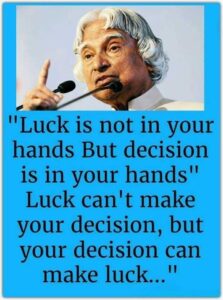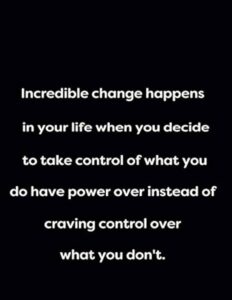Story: Drawing Competition (Source: Internet: Smitha Prasad)
The grand event of the Drawing competition was coming up in St. John Sunrise School. The students were excited to take part in it. Neelam and Sagar were best friends. They had given their names to the competition. Neelam drew a free-hand pencil sketch of her favourite cartoon character the previous day. Sagar decided to do a mandala art. Both of them practised it well.
 The day of the competition arrived, they sat in their allotted places and started to draw. Neelam, in the beginning, was sure of her preparation. However, when she saw other kids around her, she felt that everyone was drawing better than her. Others were drawing sceneries, folk art, skyscrapers and much more. Hers looked too simple. So, she changed her mind and decided to draw a scenery. She took a fresh paper and started to draw. As she had not practised it well, she could not draw this one properly. She again changed her mind and thought that she would draw folk art. But it became difficult too. The time was running, she was now scared that she might not be able to complete it on time. She hurriedly continued to draw the cartoon character. By then the time was almost up. While she was about to finish the colouring teacher asked everyone to stop their work. They started to collect the pictures. Sagar waved at Neelam and asked to show her drawing from the last bench. He showed his. It was very beautiful. But she did not show her picture.
The day of the competition arrived, they sat in their allotted places and started to draw. Neelam, in the beginning, was sure of her preparation. However, when she saw other kids around her, she felt that everyone was drawing better than her. Others were drawing sceneries, folk art, skyscrapers and much more. Hers looked too simple. So, she changed her mind and decided to draw a scenery. She took a fresh paper and started to draw. As she had not practised it well, she could not draw this one properly. She again changed her mind and thought that she would draw folk art. But it became difficult too. The time was running, she was now scared that she might not be able to complete it on time. She hurriedly continued to draw the cartoon character. By then the time was almost up. While she was about to finish the colouring teacher asked everyone to stop their work. They started to collect the pictures. Sagar waved at Neelam and asked to show her drawing from the last bench. He showed his. It was very beautiful. But she did not show her picture.
Later she told Sagar about what happened during the competition. Sagar told her that she should have stuck to her decision and drew what she had practised. She agreed and did not repeat the mistake from then.
 Moral of the Story:
Moral of the Story:
Confusion! Is a part and parcel of the decision-making process. Many times, we get confused and doubt our own decisions. But we must be sure of what we are doing. Taking suitable advice is good. Also, we must not get carried away by others’ work to the extent that we doubt our work.
No Means YES!
What happens to Neelam happens in our daily lives too. Often, we get distracted by things that are happening around us. Rather than focusing on what is suitable for us, we start seeing what others are doing and commenting to others as we are experts in that. Like,
- When we are watching a cricket match, we often give suggestions to Virat Kohli, ‘How to play!’.
- When we review the election results, we talk about ‘what the losing candidate should not have done!’
- When we are watching a movie by Amitabh Bachchan, we easily suggest ‘why he is doing this kind of role and what he should do!’
- These days Paris Olympics are going on; we often criticize the players and government for their non-performance.
 We all give suggestions knowingly and unknowingly and feel very confident about our analytical skills and authority in making decisions about others. When we look into our lives, we often find that
We all give suggestions knowingly and unknowingly and feel very confident about our analytical skills and authority in making decisions about others. When we look into our lives, we often find that
- We are not able to wake up and sleep at the promised time.
- We are always late in reaching office.
- We want to reduce weight but whenever fried potatoes come in front of us, we can not stop ourselves from eating.
- To sustain and prosper in our careers, we know that we need to do self-study and do some new courses but often we spend that time, binge-watching the latest OTT web series and gossip!
We do not have control over our thoughts and actions but we want people to listen to us and heel on our advice. When people do not do so, we feel offended and angry. We feel that something is wrong with others and they need to improve.
 Also, when people force us to do something we do it thinking that we are making other people happy and it will strengthen our relationship. Like we have decided not to eat non-vegetarian food or not to drink alcoholic drinks but when someone forces us, we go ahead with it. We are thinking that it will build our relationship but, in a way, we are giving the message to another person that we are weak and cannot be trusted!
Also, when people force us to do something we do it thinking that we are making other people happy and it will strengthen our relationship. Like we have decided not to eat non-vegetarian food or not to drink alcoholic drinks but when someone forces us, we go ahead with it. We are thinking that it will build our relationship but, in a way, we are giving the message to another person that we are weak and cannot be trusted!
Does it mean that we should not guide someone (like children, friends and colleagues), suggest how things can be improved and how to implement new things? The answer is No. We should guide and suggest what we think is right but how often we are implementing basic things in life? Are we the role models for them?
If we want to influence people, we should be able to influence ourselves first. When we commit ourselves to something, we should be able to do it, irrespective of any challenge we may face.
- If I have decided, I will not have dinner post 8 pm, I must follow it
 If I have decided that I will not consume social media for more than 2 hours, I should know the means to manage my instincts.
If I have decided that I will not consume social media for more than 2 hours, I should know the means to manage my instincts.- If I have decided that I will not talk negatively about someone on their back, I must follow it even though I may be instigated to speak about it.
- If I have decided that I will do meditation every morning, what may come, I will do it.
When we start exercising control over ourselves, we can create an aura around ourselves and others can feel it. People start listening to us carefully, people start believing in what we say and even if people do not agree with what we are saying, we do not feel let down as we know what is right.
So, the secret sauce to influence others is to mean No when we say No. People start valuing our decisions. They know how much they may try, if we have made up a decision, we will not budge.
 It does not mean that we have become too rigid. It just means that we mean what we say, people respect our decisions and they also get influenced by our commitment to ourselves.
It does not mean that we have become too rigid. It just means that we mean what we say, people respect our decisions and they also get influenced by our commitment to ourselves.
